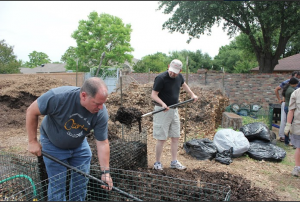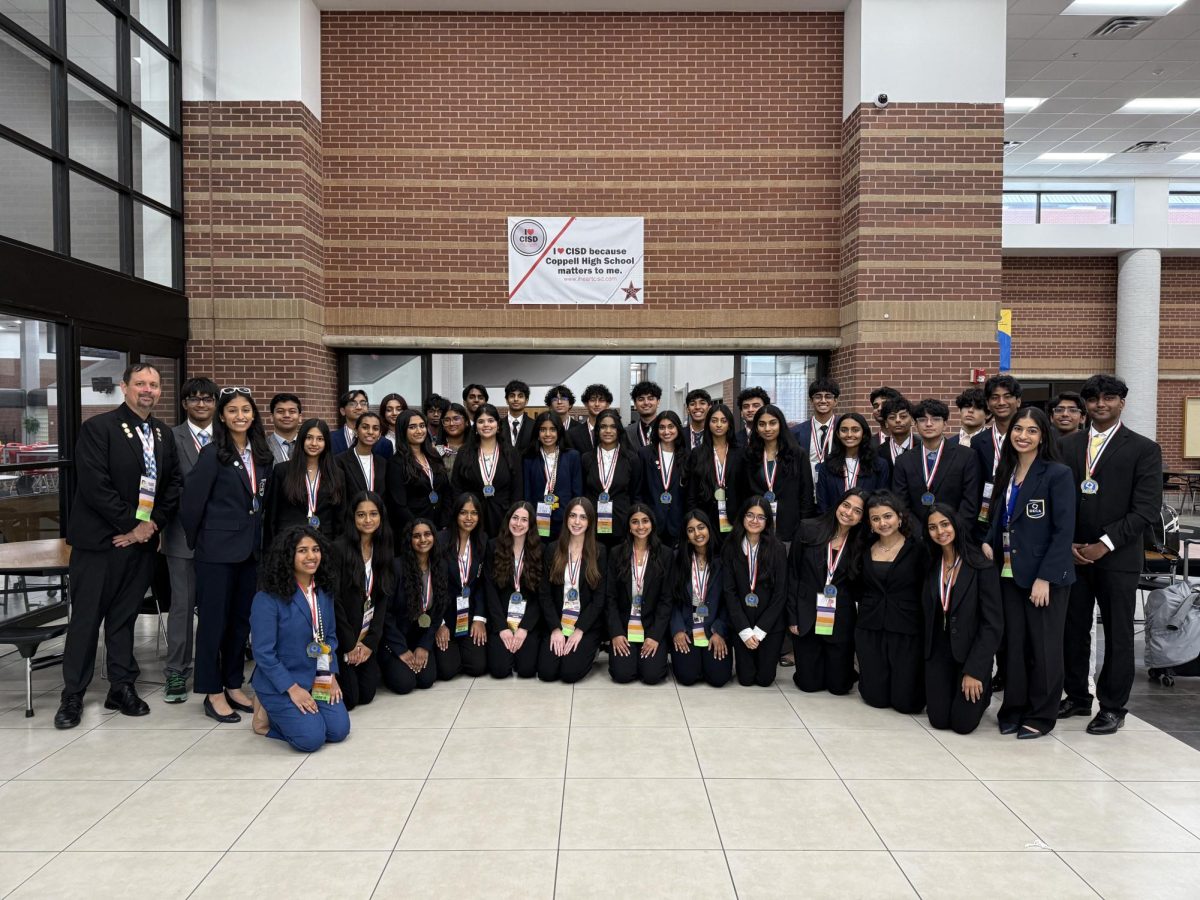By Summer Crawford
Staff Writer
On Saturday, curious Coppell citizens ventured out to the Community Garden to learn composting tips on spicing up their home lawns and gardens, and how to use materials that are normally thrown away in most households. The Environmental Education Committee held its first composting class in pursuit of its Keep Coppell Beautiful plans for the future.

The Community Garden was founded in 1998, and it has grown to house both several individual gardening plots for families, and areas for the community. Each plot has a mixture of plants, creating a wide variety of fruits, vegetables and herbs in the growing seasons. Citizens have always been welcome to stroll through the winding paths, and the composting class was a key opportunity to enrich their knowledge of gardening.
Environmental Education Committee member Burt Tindall led a group of adults step by step throughout the process of creating a compost pile. Five to seven compost bins were put out for people to build their own compost. In addition to an expert composter being present, papers on mulch and information on composting were supplied to the class.
“We want to educate the public so they understand and will compost and get rich materials for their gardens. Hopefully through this there will be less leaves and grass going to the landfill. The whole family can use it [compost bin] instead of throwing things away,” Tindall said.
The class started out by dumping bags of brown leaves on the bottom of the composting bins as the founding layer. Next, greens, consisting of plants, leaves and recycled food were added. Participants would spray water onto the materials every two layers, and this cycle would repeat until the bin was full. Participants had the ability to ask Tindall questions, and get their hands dirty while learning the biological aspects involved in composting.
“This is the first hands-on class, because all of the other gardening classes were in classrooms. This time, people were able to actually do, see and smell everything. They were able to see the garden and understand how composting fits into it,” Tindall said.
When each bin had been finished, Tindall gathered the group around his bin to show the outcome of their hard work. Turning it over slowly, the crowd saw how the leaves, greens and water had intermixed to form a black-looking substance. This compost substance was ready to be used, with regular turning, mixing of ingredients and water being added once or twice every week.
Tindall informed participants of the benefits of using the compost material in the soil of landscapes or in gardens. Utilizing composting will provide nutrients vital to plant health, retain moisture, protects against plant diseases and will allow roots to grow easier. The simple, straightforward steps shown on Saturday’s class can be followed by anyone interested in improving their lawn conditions or amping up the health of a garden.
“With our new home, we have the opportunity to restart our backyard garden and plan it out. We have an opportunity to compost with our garden; it is a fresh start,” Coppell parent Steve Benenson said. “I learned the process of starting with mulch and brown leaves, and turning it by layers of browns and greens. I know where to get the materials, and that the garden is a resource for people who have questions.”
After successfully creating useable compost piles, the group was free to explore plots of flowers and plants. Some went on a tour throughout the rows, examining fruits and pointing out physical differences in a plants’ appearances.
Whether participants had passion for composting, or simply had an interest, the morning was a pleasant experience, at a cool temperature with just the right amount of sun.
“I see the benefit of composting, and want others to see the benefit. I enjoy it and love the seeing things grow. I have a granddaughter who is 5, so she will help me plant,” Tindall said. “I have my own garden and to be able to sit there, drink your coffee and see the beautiful garden is great.”
The instructor was able to share his do’s and don’ts, and community members were able to share their gardening experiences. The information and advice has been given to citizens; now it is up to them to change their homes and make others aware of the positive results to composting.
“We have observed our neighbors compost for years. We have not experienced that. I am hopeful that the class will make a significant difference in the health and production of our new garden,” Benenson said.








